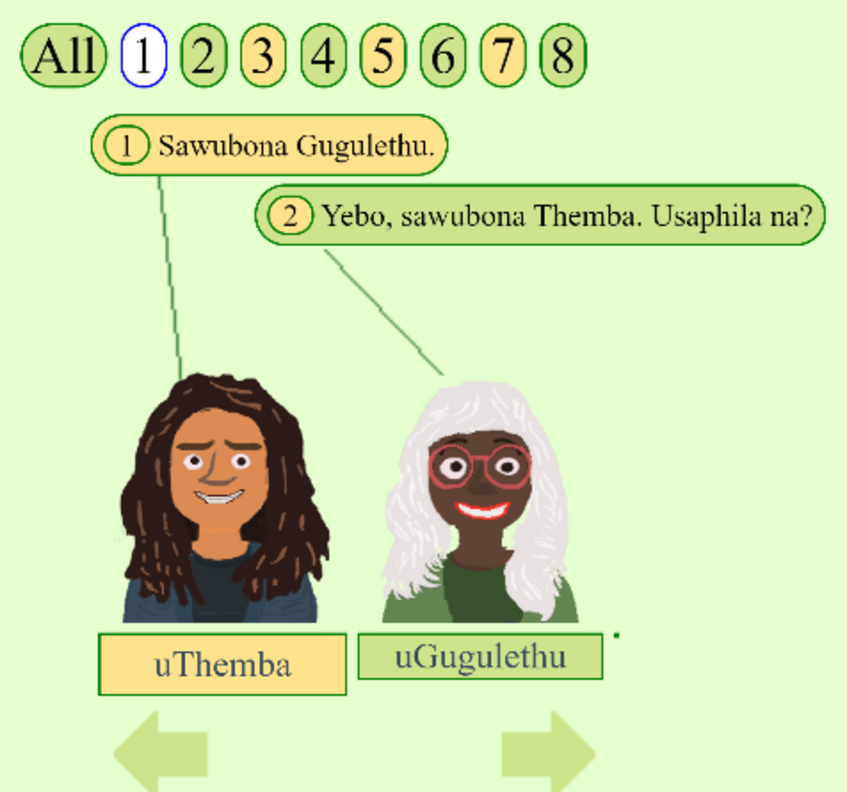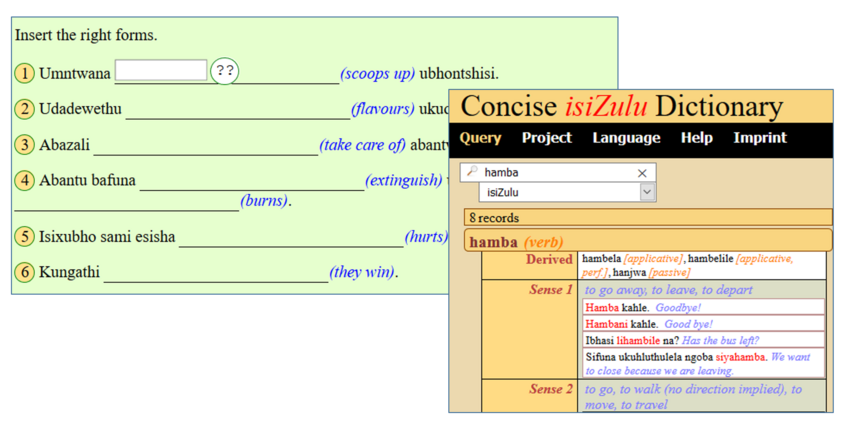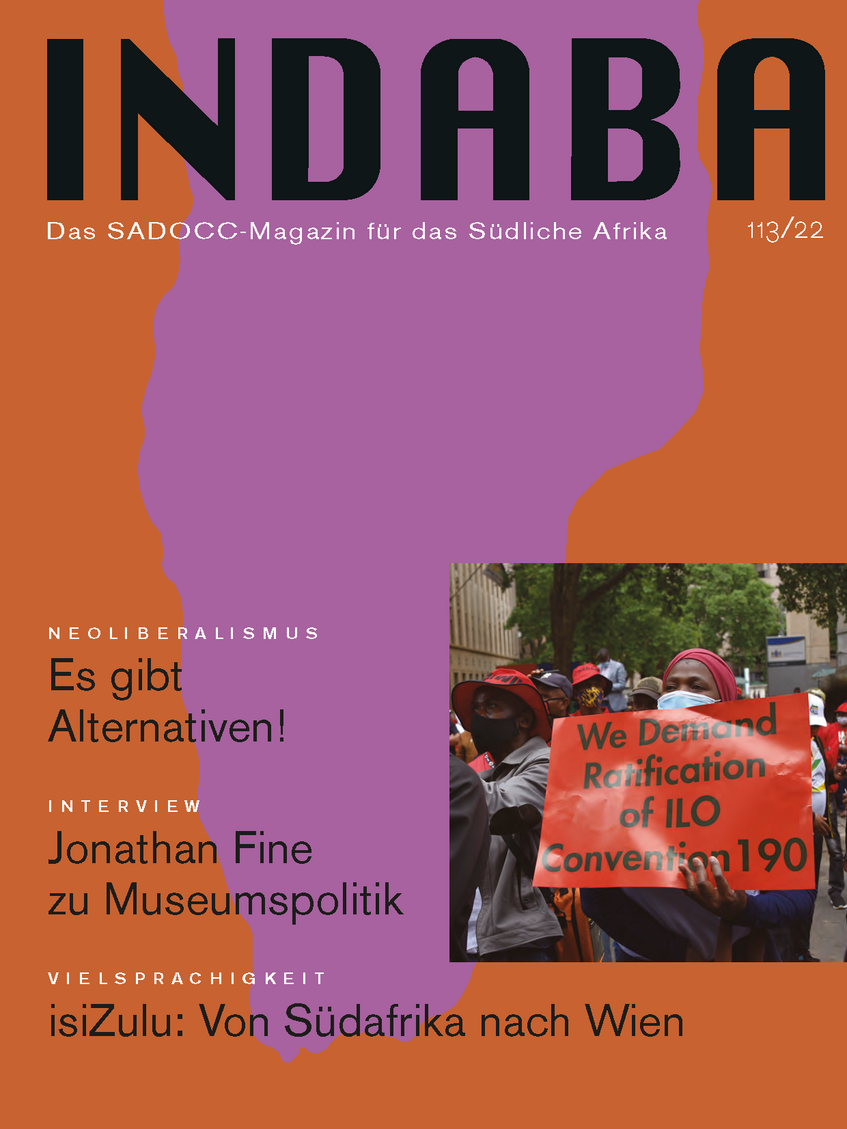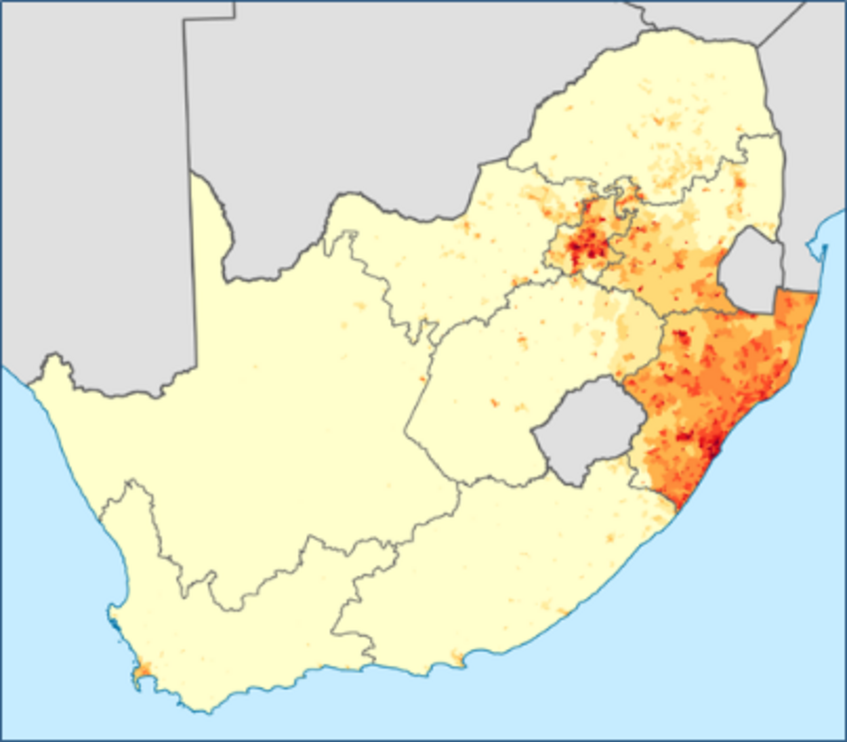Namukelekile esiZulwini! Welcome to isiZulu/heaven!
IsiZulu
IsiZulu
IsiZulu is one of the 11 official languages defined by the Constitution of the Republic of South Africa, a multi-ethnic and multilingual country with all in all more than 30 linguistic varieties. IsiZulu is the language of the Zulu people. It is spoken predominantly in the eastern and north-eastern parts of the country, in particular in KwaZulu-Natal, the north-eastern Free State, South-eastern Mpumalanga and around Johannesburg. In 2018, 25,3% of all South Africans spoke isiZulu at home (~14.600.000 out of 57.725.600). An estimated 19,2% used another Nguni language which means that nearly half of all South Africans speak isiZulu or a language closely related to isiZulu. Assuming that the number of people who speak isiZulu as a second language is even much higher, it is definitely one of the most effective means of communication and an important asset when you want to do research in and on South Africa.
Grammar is easy
While the linguistic system is quite different from what you might have encountered before both in terms of sound and structure, it turns out to be amazingly regular and easy to grasp. Experience from the past semesters has shown that students start expressing their thoughts, ideas and feelings early on and are soon able to communicate about a broad range of topics regarding their everyday lives.
Like most languages in southern Africa, isiZulu is an agglutinative language, a language that ‘glues’ pre- and suffixes to the inflectional bases of words to determine grammatical functions. It is a class language that distinguishes number and person. By contrast to Indo-European languages, grammatical functions are encoded through prefixes rather than suffixes. Therefore, we usually modify the beginnings of the words, not the endings, when we use isiZulu words.
IsiZulu at the Department of African Studies
Since 2019, the Department of African Studies of the University of Vienna has been offering an introduction to isiZulu. In developing this new course, we have pursued a twofold objective: students were meant to (a) build up a sound theoretical understanding of a new linguistic system as well as (b) developing active language skills providing them with an efficient research tool allowing them to confidently approach new social environments and to actively conduct investigations in an African country.
The course is jointly held by a first-language instructor and a trained linguist. It is designed to provide students with the means to develop a high degree of intercultural competence by also touching on issues concerning the particular socio-historical situation in modern South Africa. By learning about language change, code-switching and language transfer in a fluid and vibrant multi-ethnic and multilinguistic society, we are trying to come closer to a better understanding of post-apartheid South Africa. Grammar is dealt with in a pragmatic manner, proceeding from the students’ high school knowledge gradually introducing a critically appraised set of terms in both English/German and isiZulu.

We speak isiZulu from lesson 1, following a communicative approach developing linguistic competence out of direct interaction with the students. By getting to know a South African family, the course takes us through many aspects of their everyday life by continually expanding both vocabulary and understanding of the system of the new language. The curriculum also comprises contemporary literature and music.
The course offers a host of digital material which is accessible online:
A comprehensive grammatical description
Interactive dialogues
Texts
Audio material
Interactive exercises
A digital dictionary

The curriculum is designed to allow enthusiastic students to attain a sound working knowledge of the language and ideally reach B1 (in accordance with the Common European Framework of Reference for Languages) by the end of year 2.
Publication

Publication
Dlamini, Nkosinathi/ Mörth, Karlheinz (2022): Univie goes isiZulu. Südafrika: Sprachliche Vielfalt und Vielsprachigkeit als Norm. In: Indaba. Das SADOCC-Magazin für das südliche Afrika, 113/22, 20-23.
Article "Univie goes isiZulu", Indaba 113/22 (in German) (PDF)

